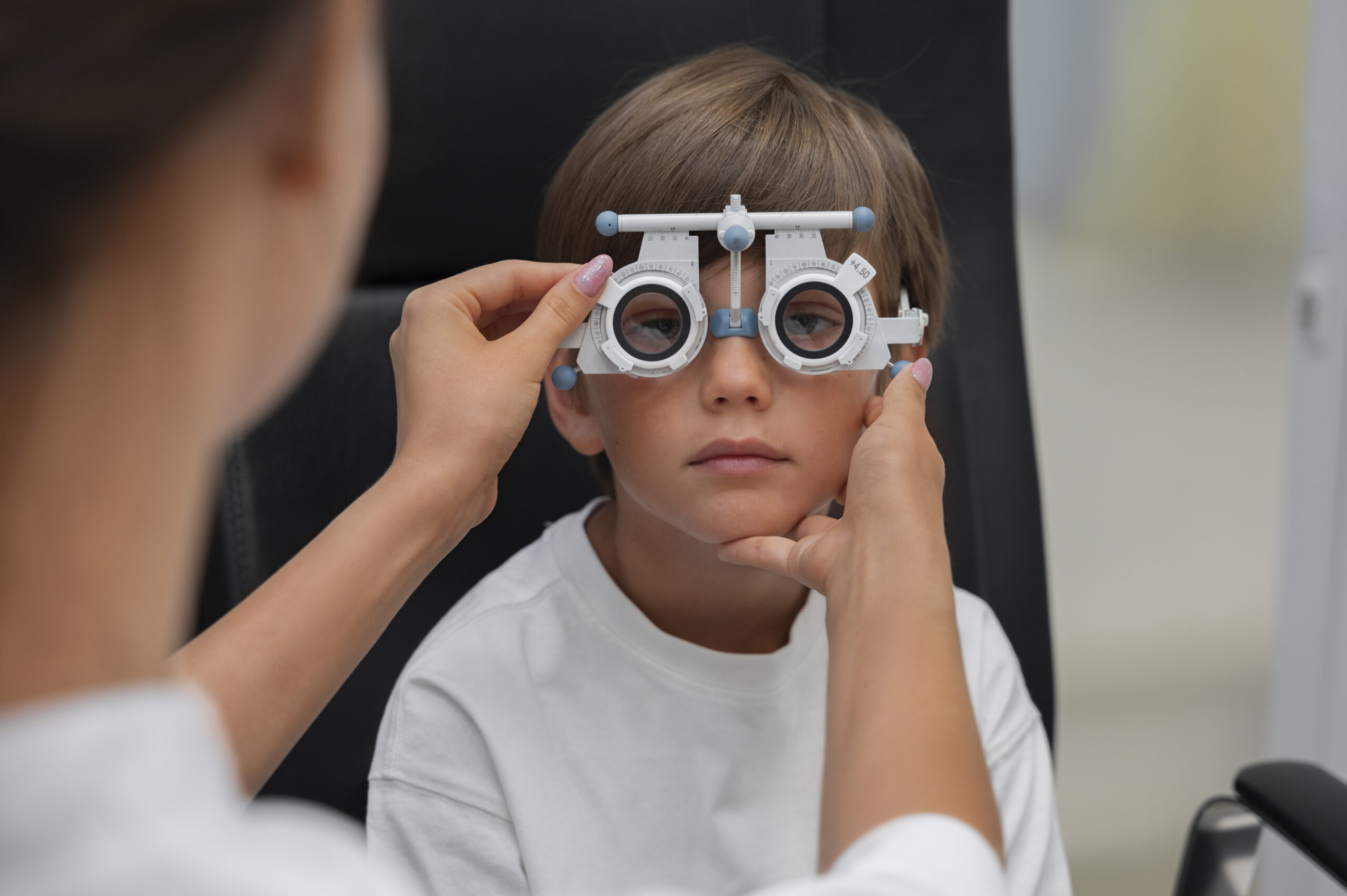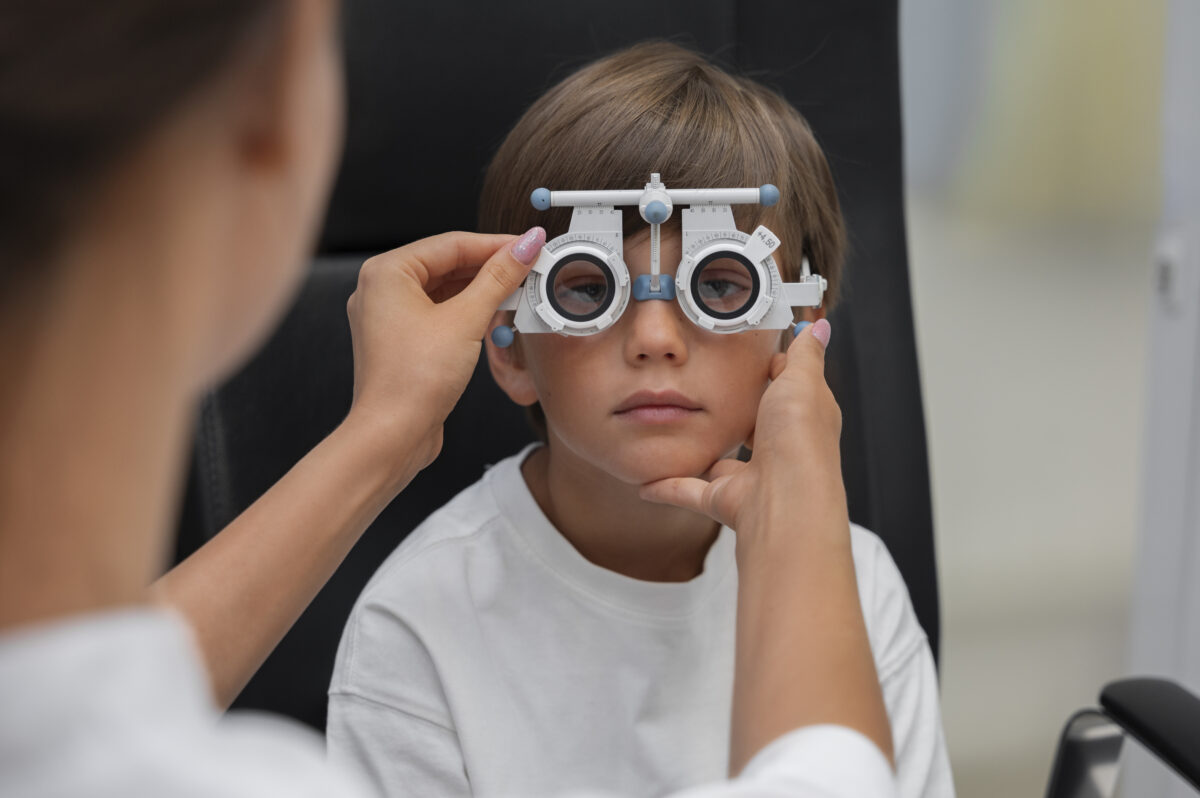Get Rid of Annoying Squints: Causes, Symptoms & Treatment
July 10, 2024
Have Any Questions?
Please contact us, if you have any queries
Categories

Squinting is a common yet often misunderstood condition affecting both children and adults. It can impact your vision, appearance, and overall quality of life.
In this blog, we will explore the causes, symptoms, and treatments for different types of squinting, helping you understand how to manage and overcome this issue.
Understanding Squints
Squinting, also known as strabismus, occurs when the eyes are not properly aligned and point in different directions. One eye may look straight ahead while the other turns inward, outward, upward, or downward. This misalignment can be constant or intermittent and can affect one or both eyes.
Causes of Squints
Several factors can contribute to the development of squints, including:
- Genetics: A family history of squints or other eye conditions can increase the likelihood of developing strabismus.
- Refractive Errors: Conditions like farsightedness (hyperopia) can cause the eyes to work harder to focus, leading to a squint.
- Muscle Imbalance: The six muscles that control eye movement may not work together properly, causing misalignment.
- Neurological Issues: Problems with the brain’s control of eye movement can lead to strabismus.
- Health Conditions: Conditions such as cerebral palsy, Down syndrome, and stroke can increase the risk of squints.
- Trauma: Injuries to the eye or head can disrupt the alignment of the eyes.
Symptoms of Squints
Recognizing the symptoms of squints is essential for early diagnosis and treatment. Common signs include:
- Misaligned Eyes: Noticeable deviation of one or both eyes.
- Double Vision: Seeing two images of a single object, which can occur intermittently or constantly.
- Eye Strain: Discomfort or fatigue around the eyes, especially during tasks that require focus, like reading or using a computer.
- Head Tilting or Turning: Adjusting the head position to use the eyes together more effectively.
- Closing One Eye: Especially in bright light, to improve vision.
- Poor Depth Perception: Difficulty judging distances accurately.
Diagnosis of Squints
If you or your child exhibit symptoms of a squint, it’s crucial to seek professional evaluation. At Rani Menon Maxivision, the best eye clinic in Kerala, we use a comprehensive approach to diagnose squints, which may include:
- Visual Acuity Test: Assessing the clarity of vision in each eye.
- Refraction Test: Determining if refractive errors like myopia or hyperopia are present.
- Eye Movement Test: Evaluating the coordination and movement of the eyes.
- Cover Test: Observing how the eyes move when one is covered.
- Retinal Exam: Checking the health of the retina and optic nerve.
- Neurological Examination: If a neurological issue is suspected, further tests may be necessary.
Treatment Options for Squints
Treatment for squints aims to improve eye alignment, enhance vision, and alleviate symptoms. The best approach depends on the cause and severity of the condition. Here are some common treatment options:
- Glasses or Contact Lenses: Correcting refractive errors can reduce or eliminate the need for squinting.
- Prism Lenses: Special lenses that help reduce double vision by altering the light entering the eye.
- Vision Therapy: is a series of eye exercises designed to improve coordination and strengthen the eye muscles.
- Eye Patching: Covering the stronger eye to encourage the weaker eye to work harder and develop better control.
- Botox Injections: In some cases, botulinum toxin can be injected into the eye muscles to temporarily improve alignment.
- Surgery: If other treatments are ineffective, surgery may be necessary to adjust the length or position of the eye muscles.
Lifestyle and Home Remedies
In addition to professional treatment, several lifestyle changes and home remedies can help manage squints:
- Regular Eye Exams: Routine check-ups can help detect and address issues early.
- Proper Lighting: Ensure good lighting when reading or working to reduce eye strain.
- Healthy Diet: Nutrient-rich foods, particularly those high in vitamins A, C, and E, support eye health.
- Limit Screen Time: Excessive screen time can strain the eyes. Take regular breaks and practice the 20-20-20 rule (every 20 minutes, look at something 20 feet away for at least 20 seconds).
- Protective Eyewear: Use safety glasses during activities that could result in eye injury.
When to Seek Help
It’s important to seek professional help if you notice any signs of squinting, particularly in children. Early intervention can prevent complications such as amblyopia (lazy eye) and permanent vision loss. At Rani Menon Maxivision, our experienced team is dedicated to providing personalised care to ensure the best possible outcomes for our patients.
Conclusion
Squints can be more than just a cosmetic concern; they can significantly impact vision and quality of life. Understanding the causes, recognizing the symptoms, and seeking timely treatment are crucial steps in managing this condition.
Book an appointment with us to learn more about various eye disorders and treatments for kids and adults. At Rani Menon Maxivision, we offer comprehensive care to help you or your loved ones overcome the challenges of squints and enjoy better eye health.

